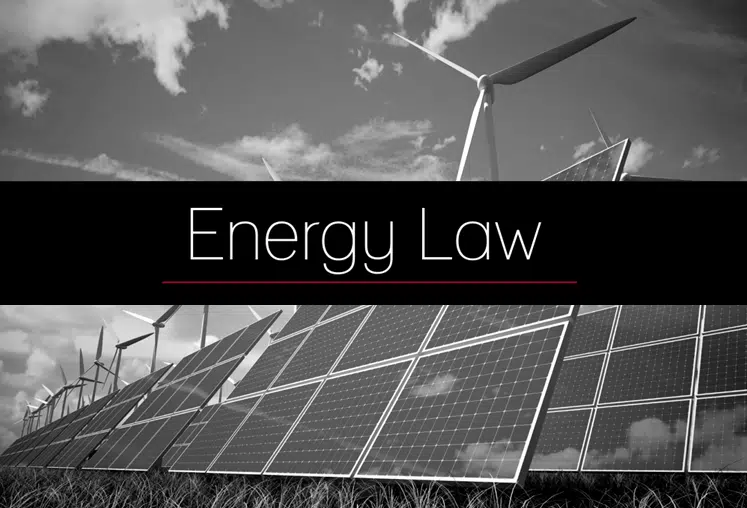What is an Energy Lawyer?
An energy lawyer is a legal professional who specializes in the field of energy and natural resources law. This type of lawyer deals with legal issues related to energy production, distribution, and consumption. They are well-versed in the laws and regulations governing different energy sources such as oil, gas, electricity, and renewable energy. Energy lawyers provide legal advice and representation to clients in both the public and private sectors, including energy companies, government agencies, and individuals.
Energy lawyers play a crucial role in ensuring compliance with environmental regulations and promoting sustainable energy practices. They assist their clients in navigating the complex legal landscape of the energy industry, helping them understand the legal implications of their actions and guiding them through the necessary processes. Whether it’s negotiating contracts, securing permits, or resolving disputes, energy lawyers are key players in ensuring that energy projects and operations are conducted legally and efficiently.
The skills and qualifications required to be an energy lawyer are diverse and extensive. First and foremost, a strong foundation in law is necessary, typically obtained through a Juris Doctor (J.D.) degree from an accredited law school. In addition to legal knowledge, energy lawyers should possess a deep understanding of the energy industry, including its technical aspects, market dynamics, and regulatory frameworks. This interdisciplinary knowledge allows them to provide effective legal strategies and solutions that meet their clients’ specific needs.
- Expertise in energy and natural resources law
- Strong analytical and problem-solving skills
- Excellent communication and negotiation abilities
- Attention to detail and ability to handle complex legal documents
- Knowledge of environmental and sustainability issues related to the energy sector
- Ability to stay updated with evolving energy regulations and policies
Energy lawyers have diverse roles and responsibilities, depending on the specific needs of their clients. They may be involved in drafting and reviewing contracts, conducting legal research, representing clients in court or administrative proceedings, and providing guidance on compliance with energy regulations. They are also involved in due diligence investigations and transactional work, especially in the context of mergers and acquisitions in the energy sector.
| Roles | Responsibilities |
|---|---|
| Advising clients on energy laws and regulations | Providing legal representation in energy-related disputes |
| Negotiating contracts and agreements | Conducting due diligence for energy transactions |
| Assisting with permit applications and compliance | Advocating for sustainable energy practices |
In conclusion, an energy lawyer is a legal professional specializing in energy and natural resources law. They are well-versed in the complex legal and regulatory frameworks that govern the energy industry. Their role involves advising clients, representing them in legal proceedings, and ensuring compliance with energy regulations. Energy lawyers play a crucial part in supporting sustainable energy practices and helping their clients navigate the legal complexities of the energy sector.
Skills and Qualifications of an Energy Lawyer
An energy lawyer is a legal professional who specializes in handling legal matters related to the energy industry, including renewable energy, oil and gas, electricity, and natural resources. In order to succeed in this specialized field, an energy lawyer must possess a unique set of skills and qualifications.
1. Knowledge of Energy Laws and Regulations:
One of the most important qualifications of an energy lawyer is a comprehensive understanding of energy laws and regulations. This includes knowledge of federal, state, and local laws that govern the production, distribution, and use of energy. Energy lawyers must stay updated with the latest changes in the legal landscape and possess the ability to interpret complex regulations.
2. Analytical and Problem-Solving Skills:
Dealing with legal issues in the energy sector requires strong analytical and problem-solving skills. Energy lawyers need to analyze complex data, identify legal issues, and develop effective strategies to address them. They must be able to think critically and find innovative solutions to the unique challenges faced by their clients in the energy industry.
3. Negotiation and Communication Skills:
Effective communication and negotiation skills are essential for an energy lawyer. They need to negotiate contracts, leases, and agreements on behalf of their clients with other parties, such as energy producers, suppliers, and regulators. It is crucial for energy lawyers to effectively communicate complex legal concepts to clients and stakeholders in a clear and concise manner.
4. Technical and Industry Knowledge:
Having a good understanding of the technical aspects of the energy industry is an advantage for an energy lawyer. This includes knowledge of engineering principles, environmental regulations, and energy technologies. Being familiar with industry terminology and trends allows energy lawyers to better represent their clients’ interests and provide more comprehensive legal advice.
5. Strong Research and Writing Skills:
Research and writing skills are fundamental for any lawyer, and energy lawyers are no exception. They need to conduct extensive research on various legal issues, prepare legal documents, and write persuasive arguments. Strong research and writing skills enable energy lawyers to effectively advocate for their clients in legal proceedings and provide accurate legal advice.
In conclusion, becoming a skilled energy lawyer requires a combination of specialized knowledge, analytical abilities, negotiation skills, technical expertise, and strong research and writing capabilities. By possessing these skills and qualifications, energy lawyers can effectively navigate the complex and ever-changing legal landscape of the energy industry, providing valuable legal guidance and representation to their clients.
Roles and Responsibilities of an Energy Lawyer
An energy lawyer plays a significant role in the energy sector, ensuring that all legal aspects related to energy production, distribution, and consumption are handled effectively. To understand the roles and responsibilities of an energy lawyer, let’s delve into their core tasks and duties.
1. Legal Advisory: One of the primary responsibilities of an energy lawyer is to provide legal advice to clients in the energy industry. They help businesses navigate the complex web of energy laws and regulations, ensuring compliance and mitigating risks. This involves analyzing contracts, agreements, and policies to ensure their legality and appropriateness in the energy sector.
2. Contract Negotiation: Energy lawyers are responsible for drafting, reviewing, and negotiating contracts related to energy exploration, production, distribution, and transportation. They work closely with clients to ensure that contracts align with their interests and comply with relevant laws. Additionally, energy lawyers assist in resolving contract disputes and handling negotiations between parties involved in energy projects.
3. Regulatory Compliance: The energy sector is highly regulated, with numerous laws and regulations governing its operations. Energy lawyers help clients understand and comply with these regulations to avoid legal complications or penalties. They stay updated with changes in energy policies and advise clients on implementing necessary measures to meet regulatory requirements.
4. Dispute Resolution: In case of disputes or legal conflicts in the energy sector, energy lawyers play a vital role in representing their clients’ interests. They engage in negotiation, mediation, and legal proceedings to resolve disputes efficiently. Energy lawyers may also handle arbitration or litigation processes, ensuring that their clients’ rights are protected and securing favorable outcomes.
5. Environmental Considerations: Energy production and consumption often have significant environmental implications. Energy lawyers assist clients in understanding and addressing environmental concerns associated with their projects. They provide legal guidance on environmental impact assessments, permit applications, and compliance with environmental regulations, fostering sustainable practices in the energy sector.
By fulfilling these roles and responsibilities, energy lawyers contribute to the smooth functioning of the energy industry and help clients navigate the legal complexities inherent in this sector.
The Importance of Hiring an Energy Lawyer
Hiring an energy lawyer is of utmost importance when dealing with legal matters in the energy industry. Energy lawyers possess specialized knowledge and experience in this field, allowing them to navigate complex laws and regulations. What sets them apart from general attorneys is their in-depth understanding of the energy sector, including renewable energy, oil and gas, and utilities. By hiring an energy lawyer, individuals and organizations can ensure compliance with legal requirements, protect their rights, and effectively manage risks in this dynamic and highly regulated industry.
One of the key reasons to hire an energy lawyer is to ensure compliance with the numerous laws and regulations governing the energy sector. The energy industry is subject to a wide range of laws at the local, national, and international levels. These laws encompass environmental regulations, labor and employment laws, intellectual property rights, and contract regulations. An energy lawyer is well-versed in these legal frameworks and can provide guidance to ensure that individuals and businesses are operating within the boundaries of the law.
In addition to compliance, an energy lawyer plays a crucial role in protecting the rights and interests of their clients. Whether it is negotiating contracts, resolving disputes, or pursuing legal action, an energy lawyer acts as a strong advocate for their clients. They have the expertise to review and draft contracts, ensuring that the terms and conditions are favorable and protect their client’s interests. Should any disputes arise, an energy lawyer can provide legal representation, working towards a favorable outcome through mediation, arbitration, or litigation.
Another reason to hire an energy lawyer is the effective management of risks. The energy industry is highly complex and constantly evolving. It is essential for individuals and organizations to identify and mitigate potential risks associated with their operations. An energy lawyer possesses the necessary knowledge and experience to assess risks, develop risk management strategies, and provide expert advice on risk mitigation. By proactively addressing risks, energy lawyers help their clients avoid costly legal issues and safeguard their business interests.
List of Reasons to Hire an Energy Lawyer:
- Specialized Knowledge: Energy lawyers have specialized knowledge and experience in the energy industry, allowing them to navigate complex laws and regulations.
- Compliance: Energy lawyers ensure compliance with the numerous laws and regulations governing the energy sector, minimizing the risk of legal penalties.
- Protection of Rights: Energy lawyers act as strong advocates for their clients, protecting their rights and interests during negotiations, disputes, and legal proceedings.
- Risk Management: Energy lawyers assist in identifying and mitigating potential risks associated with energy operations, minimizing the likelihood of legal issues and financial losses.
Table: Qualifications of an Energy Lawyer
| Knowledge and Expertise | Experience in Energy Law | Strong Negotiation Skills |
|---|---|---|
| Deep understanding of energy industry regulations and dynamics | Handled a diverse range of energy-related cases and transactions | Ability to negotiate complex contracts and agreements |
| Familiarity with environmental and sustainability regulations | Advised clients on compliance with energy regulatory frameworks | Capability to find mutually beneficial solutions in disputes |
| Knowledge of renewable energy sources and their legal implications | Participated in renewable energy projects and transactions | Effective communication and persuasive skills |
Overall, the importance of hiring an energy lawyer cannot be overstated. Their specialized knowledge, expertise in energy law, and ability to navigate complex legal issues make them invaluable assets in the energy industry. From ensuring compliance with regulations to protecting rights and effectively managing risks, energy lawyers play a crucial role in the success and sustainability of individuals and organizations involved in the energy sector.
Top Challenges Faced by Energy Lawyers
An Energy Lawyer is a legal professional who specializes in providing legal services and advice in the energy sector. They play a crucial role in dealing with legal issues and challenges faced by individuals, companies, and organizations operating in the energy industry. While this field presents various unique opportunities, it also poses several challenges that Energy Lawyers must navigate and overcome to be effective in their role.
One of the top challenges faced by Energy Lawyers is keeping up with the ever-changing regulations and laws within the energy sector. The energy industry is highly regulated, and laws can vary across different regions and jurisdictions. Energy Lawyers need to stay updated with the latest legal developments, including changes in environmental regulations, energy policy, and renewable energy laws. This can be a daunting task, as new laws are often introduced, existing laws may be amended, and legal interpretations may evolve over time.
Another significant challenge for Energy Lawyers is balancing the interests of various stakeholders. In the energy industry, there are often competing interests between different parties, such as energy companies, environmental groups, local communities, and government bodies. Energy Lawyers must navigate these complex relationships and find solutions that satisfy the interests of all parties involved. This requires excellent negotiation and communication skills, as well as a deep understanding of the unique dynamics within the energy sector.
Additionally, the global nature of the energy industry can pose challenges for Energy Lawyers. Energy projects and transactions often involve multiple jurisdictions, each with its own legal framework and requirements. Energy Lawyers may need to work across borders and collaborate with legal professionals from different countries to ensure compliance with local laws and regulations. This can be a complex and time-consuming process, requiring extensive legal research and coordination among various legal teams.
In conclusion, Energy Lawyers face several challenges in their profession. From keeping up with evolving regulations to balancing the interests of different stakeholders, and navigating the complexities of the global energy industry. Despite these challenges, Energy Lawyers play a crucial role in providing legal guidance and support to the energy sector, ensuring compliance with laws and regulations, and promoting sustainable and responsible energy practices.
Frequently Asked Questions
What is an Energy Lawyer?
An Energy Lawyer is a legal professional who specializes in laws and regulations related to the energy industry. They provide legal advice and representation to companies and individuals involved in the generation, distribution, and consumption of energy.
What are the skills and qualifications of an Energy Lawyer?
An Energy Lawyer should have a strong understanding of energy law, policies, and regulations. They should possess excellent research and analytical skills, as well as effective communication and negotiation skills. A law degree and relevant experience in the energy industry are typically required to become an Energy Lawyer.
What are the roles and responsibilities of an Energy Lawyer?
An Energy Lawyer assists clients in navigating complex energy laws and regulations. They may draft and negotiate contracts, provide legal advice on energy projects, handle regulatory compliance matters, and represent clients in disputes or litigation related to energy issues.
Why is it important to hire an Energy Lawyer?
Hiring an Energy Lawyer is crucial for companies and individuals involved in the energy sector to ensure compliance with energy laws and regulations. Energy Lawyers provide expert legal guidance, help avoid legal pitfalls, and protect the rights and interests of their clients in the energy industry.
What are the top challenges faced by Energy Lawyers?
Some of the top challenges faced by Energy Lawyers include keeping up with rapidly changing energy laws and policies, dealing with complex regulatory frameworks, addressing environmental and sustainability concerns, and navigating the legal aspects of emerging energy technologies.
How does an Energy Lawyer help in renewable energy projects?
An Energy Lawyer plays a crucial role in renewable energy projects by providing legal advice on project development, financing, and compliance with renewable energy regulations. They can negotiate power purchase agreements, secure necessary permits, and handle any legal issues that may arise during the project’s lifespan.
What is the future outlook for Energy Lawyers?
The future outlook for Energy Lawyers is promising as the energy industry continues to evolve. With the increasing focus on renewable energy and sustainability, Energy Lawyers will be in high demand to navigate the legal complexities of the transitioning energy landscape and ensure regulatory compliance.






